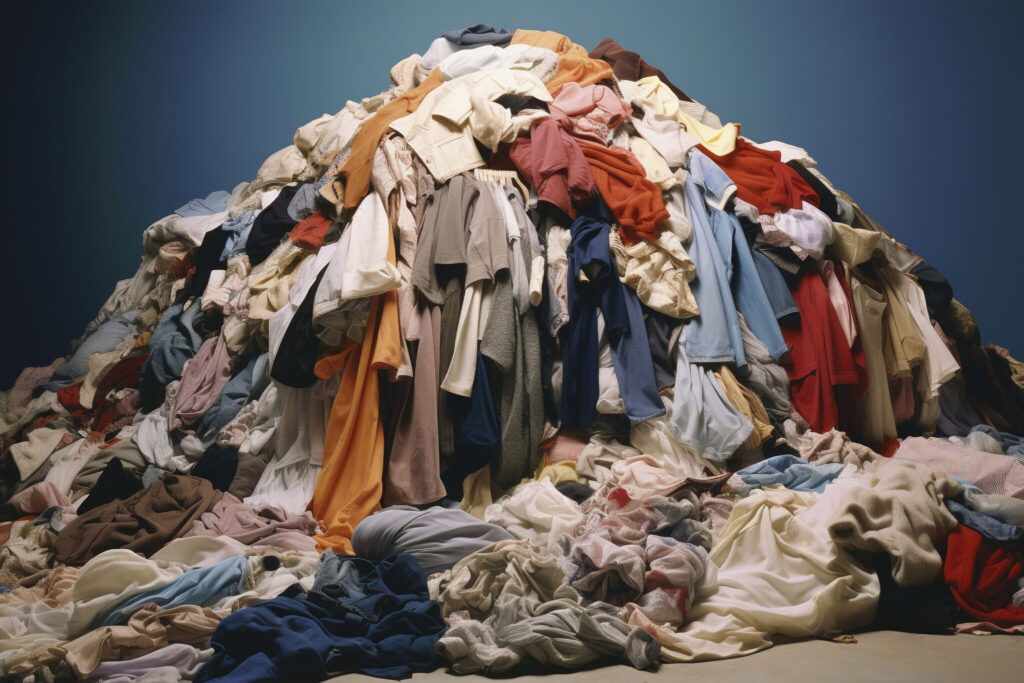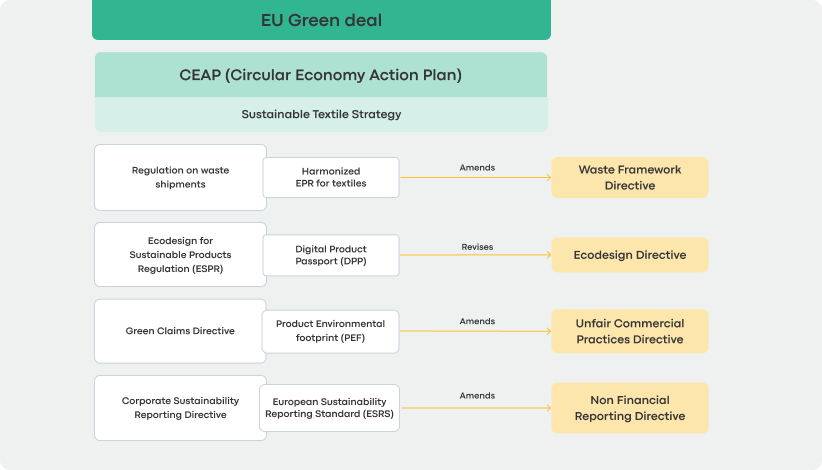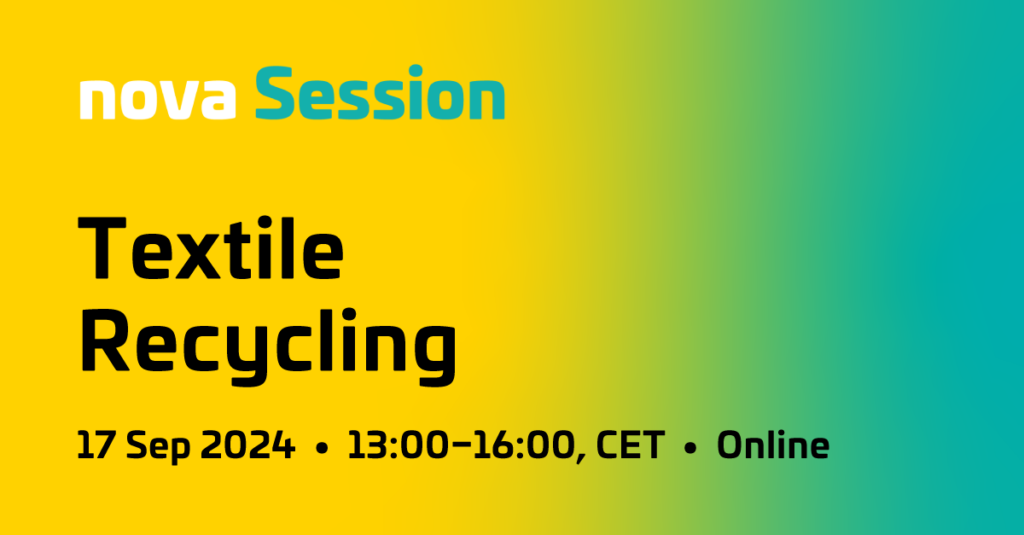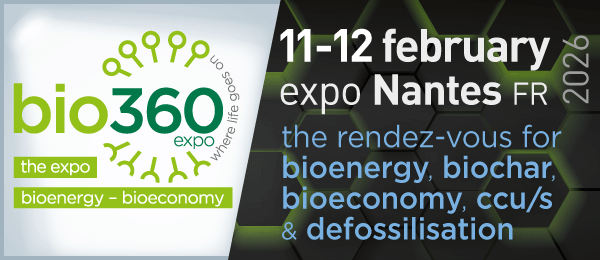The textile industry is at a critical turning point. With the rise of global environmental consciousness, the demand for sustainable solutions is more urgent than ever. One area with immense potential is fibre-to-fibre recycling, which aims to turn discarded textiles into new, usable fibres. Although Europe has made strides in this area, significant challenges remain, particularly with managing mixed-fibre textiles and scaling recycling technologies.

Despite technological innovations and increasing political support, textile recycling is still far from being a fully integrated part of the European circular economy. Today, around 10% of textiles in the market are recycled, most of them in less valuable applications than clothing. Less than 1% of the world’s clothing is recycled into new fibres for the clothing industry. But change is on the horizon. New EU regulations are setting ambitious goals to reduce waste and increase the use of recycled materials, pushing the industry to adapt. This shift is both a challenge and an opportunity. Brands and manufacturers are being forced to rethink their processes, while the rapid development of new technologies offers fresh possibilities.
Mixed Fibre Recycling
One of the biggest hurdles the industry faces is dealing with mixed fibres. Many textiles today are made from a combination of materials that are difficult to separate and recycle. However, innovative approaches, particularly in the recycling of cellulosic fibres, are providing a promising path forward. By transforming textile waste into new fibres, these technologies support a truly circular system–one where waste is not discarded, but rather, becomes a valuable resource.
The industry is also under growing pressure from consumers. As people become more aware of the environmental impact of fast fashion and unsustainable production methods, they are demanding more responsible choices. Brand owners are responding, but the transformation requires collaboration across the entire value chain. From fibre producers and manufacturers to researchers and policymakers, every link must work together to make large-scale textile recycling a reality.

EU Strategy for Sustainable and Circular Textiles
The European Union (EU) is making major efforts to reduce carbon emissions and pave the way for a more sustainable future. Given the significant carbon footprint of the fashion and textile industries, these sectors will be heavily impacted by the growing number of EU regulations and directives set to take effect in the coming years. Both EU-based and international fashion brands will need to closely monitor how these new rules will influence their operations.
To fulfill the goals of the European Green Deal and the Circular Economy Action Plan (CEAP), the EU has introduced a dedicated strategy for the textiles sector. The EU Strategy for Sustainable and Circular Textiles aims to transform the entire lifecycle of textile and footwear products. This strategy will not only change how fabrics are produced but also how they are consumed and eventually disposed of. Key objectives include extending the lifespan of textiles, boosting the use of recycled fibres, curbing fast fashion, and making products easier to repair or recycle through the use of a Digital Product Passport. It includes also restriction of the export of textile waste and promotes sustainable textiles globally.

Nova-Session Textile Recycling
On this front, a group of leading experts will come together on 17 September 2024 from 13:00-16:00 CEST to share their insights and advancements in an upcoming webinar on fibre-to-fibre recycling. Hosted by nova-Institute, the session will feature a range of speakers from cutting-edge companies and research institutes, offering a window into the latest developments in the field. Among them are Valmet and Andritz, two industry giants driving innovation in textile recycling technology, and experts from AIMPLAS and the University of Delaware, who are tackling the complex issue of recycling mixed textiles.
The session, led by Dr. Asta Partanen and Dr. Lars Krause of nova-Institute, will not only cover the technological solutions already being implemented, but also address the regulatory framework shaping the future of the industry. The European Union’s increased focus on sustainability, with stricter rules on waste management and a push for circular production models, means that companies will need to adopt these new recycling technologies on a much larger scale. These regulatory changes could be a turning point, encouraging wider adoption and ultimately reducing the need for virgin materials.
This webinar will be a crucial moment for the industry, offering both a platform for discussion and a look into the future of textile recycling. By showcasing real world applications of fibre-to-fibre recycling, the event highlights the importance of continued innovation and collaboration. To overcome current barriers and make a circular economy not just an aspiration but an operational reality, the insights shared here will be key.
For those invested in the future of sustainable textiles, this event is more than just a learning opportunity–it’s a chance to join the movement towards lasting change. As the textile industry grapples with the realities of waste management and sustainability, it is initiatives like these that offer a glimpse of what is possible, and how we can collectively build a more sustainable future for textiles and fibres.
The following program will provide enough time for the participants to discuss and ask their questions.
13:00 nova-Institute (DE): Dr. Asta Partanen – Welcome and Regulatory Framework
13:15 nova-Institute (DE): Dr. Lars Krause – Advanced Recycling for Textiles
13:40 Valmet (FI): Heli Kangas – Towards scale-up – Challenges and Opportunities for Industry in Cellulosic Textile Fiber Production and Recycling
14:05 – 14:15 Coffee break
14:15 Andritz (AT): Elina Pesonen – New Opportunities in the Circular Textile Ecosystem
14:40 Aimplas (SP): Mireia Fernandez Bazan – Complementarity of Recycling Technologies – Strategy to Achieve Comprehensive and Sustainable Recycling of Textile Waste
15:05 University of Delaware (US): Prof. Dionisios Vlachos – Chemical Recycling of Mixed Textiles
15:30 Plenary discussion and wrap up
16:00 End
For stakeholders interested in more comprehensive recycling approaches, nova-Institute is hosting the Advanced Recycling Conference 2024 from 20-21 November in Cologne, Germany and online. Early can enjoy a 10% discount until 10 September 2024.
Supplier
Share
Renewable Carbon News – Daily Newsletter
Subscribe to our daily email newsletter – the world's leading newsletter on renewable materials and chemicals











